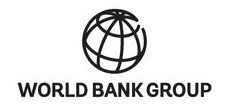The World Bank Group's (World Bank) commitments rose to over US$61 billion in loans, grants, equity investments and guarantees to countries and private businesses in fiscal year 2016 (FY16), according to a World Bank press release.
This financing includes support for climate change and a continued focus on sub-Saharan Africa, which remains a top priority with commitments to countries reaching US$12.5 billion in FY16.
 12 July 2016: The World Bank Group’s (World Bank) commitments rose to over US$61 billion in loans, grants, equity investments and guarantees to countries and private businesses in fiscal year 2016 (FY16), according to a World Bank press release. This financing includes support for climate change and a continued focus on sub-Saharan Africa, which remains a top priority with commitments to countries reaching US$12.5 billion in FY16.
12 July 2016: The World Bank Group’s (World Bank) commitments rose to over US$61 billion in loans, grants, equity investments and guarantees to countries and private businesses in fiscal year 2016 (FY16), according to a World Bank press release. This financing includes support for climate change and a continued focus on sub-Saharan Africa, which remains a top priority with commitments to countries reaching US$12.5 billion in FY16.
Demand for lending from the International Bank for Reconstruction and Development (IBRD) and the International Development Association (IDA) rose to levels not seen outside a financial crisis, according to the World Bank. IBRD, which provides financing, risk management products and other financial services to countries, increased its commitment level to US$29.7 billion. Commitments from IDA, which provides interest-free loans and grants to the poorest 77 countries in the world, totaled US$16.2 billion in FY16. The International Finance Corporation (IFC), which focuses on the private sector, has leveraged its experience to address development challenges, including those related to climate change, access to finance, jobs and infrastructure. In FY16, 20% of the IFC’s advisory services were in fragile and conflict-afflicted areas. The Multilateral Investment Guarantee Agency (MIGA) has had a record year of US$4.3 billion of credit enhancement guarantees and political risk insurance. Its work focuses on climate change, IDA countries and fragile and conflict-affected areas.
As part of efforts to deliver innovative financial solutions to address global challenges, the World Bank launched several initiatives. The Pandemic Emergency Financing Facility aims to create the first-ever insurance market for pandemic risk and to serve as an innovative, fast-disbursing global financing mechanism to help prevent epidemics from turning into pandemics. With the UN and Islamic Development Bank, the World Bank launched the Middle East and North Africa (MENA) Financing Initiative, which will provide support to Lebanon and Jordan, the countries that have taken in the largest share of refugees in relation to their population size.
On climate change and disaster risk management (DRM), the World Bank released a Climate Change Action Plan to help countries deliver on their national climate action plans, and has launched an Africa Climate Business Plan. Under these plans, the World Bank has provided a US$625 million loan to support India’s grid-connected rooftop solar program and a climate smart agriculture (CSA) project in Niger that aims to boost productivity and resilience and reduce greenhouse gas (GHG) emissions. The Bank also provided disaster risk insurance to the Cook Islands, the Marshall Islands, Samoa, Tonga and Vanuatu through its Pacific Catastrophe Risk Assessment and Financing Initiative.
“In a world where risks are multiplying – slower global growth, increasing numbers of forcibly displaced people, and abrupt changes in the environment due to climate change – low- and middle-income countries are asking us for more help,” said World Bank President Jim Yong Kim. He said the World Bank will continue to meet the growing demand for innovative financial tools and share its “global knowledge to help countries address their most challenging issues.” [World Bank Press Release]